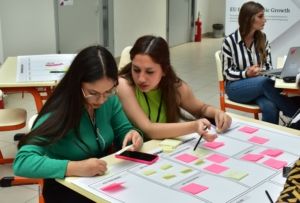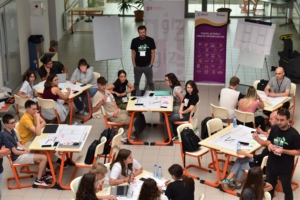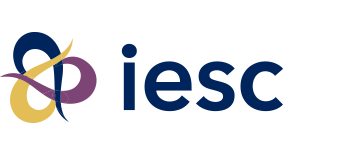Towards a green future through youth innovation
The recent Green Solutions Hackathon in North Macedonia sparked a wave of innovative ideas, including the creation of organic fertilizers, an online marketplace for second-hand clothing, cutting-edge smart bins, a zero-waste approach to leather production, and the integration of AI in solar panel energy generation.
This dynamic event, hosted by SEEUTechPark and the 700 Accelerator in Tetovo, brought together more than 60 participants, including students and startups, who worked tirelessly to tackle pressing environmental challenges. “It was a really rewarding experience. Everyone had great ideas. We met new people and learned a lot”, said Emine Nazifovska, a member of the winning team BIODEFEND, consisted of talented secondary school students from Resen, a small town in North Macedonia.
Participation in the Green Solutions Hackathon offered attendees a unique opportunity to expand their knowledge and skills in sustainability, green business solutions, market development, and financial sustainability. Moreover, the hackathon facilitated invaluable networking opportunities, connecting like-minded individuals who share a passion for driving positive change in society. “We encourage all young people to participate in hackathons like this one. Even if you don’t win anything, it’s worth it because you gain experience and enhance your knowledge”, adds Emine.
 By engaging young people in finding innovative green solutions to environmental challenges, IESC fosters youth participation and instills critical skills relevant to modern careers for North Macedonia’s youth. The success of the hackathon was made possible through the collective support of the USAID Youth Actively Create Opportunities Activity implemented by IESC and the Deutsche Gesellschaft für Internationale Zusammenarbeit GmbH (GIZ) under the auspices of the German Cooperation and the SENECA Green.
By engaging young people in finding innovative green solutions to environmental challenges, IESC fosters youth participation and instills critical skills relevant to modern careers for North Macedonia’s youth. The success of the hackathon was made possible through the collective support of the USAID Youth Actively Create Opportunities Activity implemented by IESC and the Deutsche Gesellschaft für Internationale Zusammenarbeit GmbH (GIZ) under the auspices of the German Cooperation and the SENECA Green.
Watch this video from the event: Green Solutions Hackathon
The contents of this website are the sole responsibility of IESC and do not necessarily reflect the views of USAID or the United States Government.


